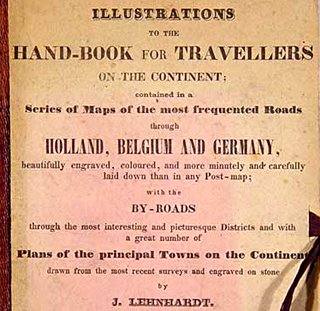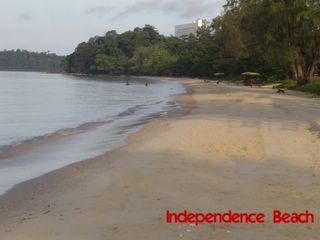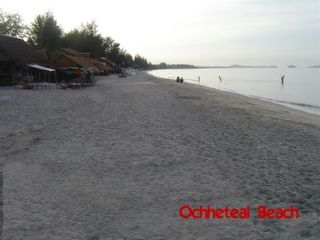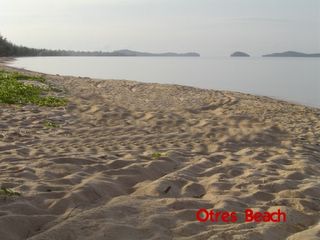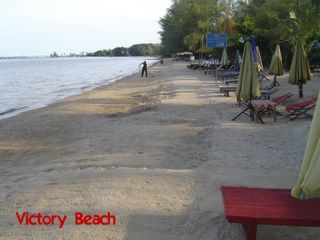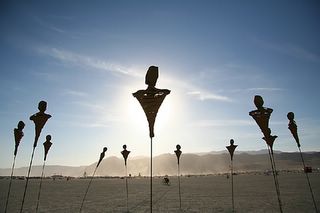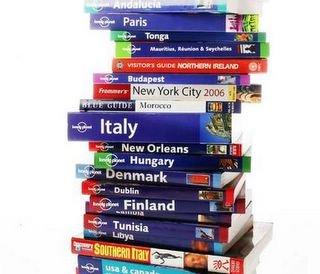 Through the Looking Glass
Through the Looking GlassTravel writers who are writing stories for magazines or websites always need to find an underlying theme to their articles, whether it is following Conrad on his journeys around Southeast Asia or finding Orwell in Burma. You can't just write about nonsense and expect anyone to give a damn.
And so it goes with even the most lauded adventure travel writers on the planet such as Richard Bangs, founder of Sobek and the brave soul who rafted down a river in Central Africa and went on to establish his adventure travel company, now incorporated into Mountain Travel if I've got my facts straight.
Bangs wrote recently about the changes in adventure travel over the past few decades, and he's certainly qualified to write such an article, as he is a bonified expert on the subject. Why, then, so many inaccuracies? Most of the article is spot on, but his wildly imaginative writing style means he should exaggerate every failure in present day adventure travel? Why would he do that?
But I love his new words: faddism, rolling skein, panolpy of adventures. Nice wordsmithing, there.
The original adventure travelers were merchants on expedition, seeking proceeds for their imperial backers,
As an example, he cites Leif Erikson. Hello? Leif as merchant on expedition, seeking proceed for his imperial backer?
Leif Ericson was blown off course sailing from Norway to Greenland about A.D. 1000 and ended up in North America.
I'm sure the Norweigans will be thrilled to learn that their national hero was blown off course and only stumbled across North America. And where did Bangs get his notion about this theory?
The advent of modern international adventure travel traces to some 35 years ago, with the first organized treks to the Nepalese Himalayas, and soon thereafter the first commercial raft trips in Africa.
Guess who led the first commercial raft trips in Africa?
So much has changed. Nepal, which throughout the 1980's was the archetypically adventure travel destination, has been embroiled in a Maoist revolution the last several years and is on few itineraries today. The nearby kingdom of Bhutan has been the beneficiary, and is seeing record tourism. Virtually all the trekkers who go to Bhutan wander among the high peaks and immerse themselves in the Buddhist culture.
Bhutan, to my understanding, has very strict limits on international tourism, and I think the country only admits some 5,000 visitors per year. The tours may be filled up, but I doubt this is any direct response to the problems in Kathmandu.
In the 1970's, there were overland treks in Afghanistan, camel safaris in Algeria and river runs in New Guinea, none of which are viable today.
Richard should check with the tour operators which do organized river journeys up the Sepik, as I did several years ago. All are still in business. If you're nuts enough, you can still buy a canoe and paddle down the Sepik, although I wouldn't really recommend it. New Guinea is the most dangerous country I've ever visited.
In the 80's, popular offerings included felucca trips down the Egyptian Nile, climbing Mount Ararat in eastern Turkey, diving the Red Sea, even surfing in Bali. None of those is offered anymore, for fear of religious-based terrorism.
Surfing is now longer available in Bali? Richard, please tie down your hat and visit Nick at www.baliblog.com
I don't know about diving the Red Sea, but is it true that "none of those are offered anymore"?
Even natural disasters take their toll. Thailand had long been a top adventure destination until the tsunami hit in 2004; more than a year later, visitation numbers remain significantly down.
Tourism in tsunami zones is down about 20-30%, but is expected to rebound next year. Most people understand that a great tsunami is an extremely rare occurrence, and when the infrastructure at Khao Lak (most devastated) is rebuilt, the Swedish tourists will return. This statement is pure sensationalism and will only scare away people who should, should, should go to Thailand to help support the Thai people working in the local tourist industry. Shame on Richard.
Today, the fear of avian flu is keeping many Americans away from Southeast Asia and China.
Wrong. Outdated and sad sensationalism. Why is Richard a fear-mongering type? We expect it from Bush, but not from the guy whose purpose in life is to promote grand adventure travel.....to see the world and spread the wealth.
Conversely, destinations rarely visited by American adventurers in the 70's, 80's and 90's have in recent years become popular, like Libya, Mozambique, Nicaragua and Panama, all of which I've traveled to in the last 18 months, delighting in their incipient adventure offerings.
Note: Slate sent Bangs to Libya last year to report on the opening of that country. His report was colorful and honest, but he really seemed to hate most of the trip. And now he promotes the place. Really, Libya is NOT popular, not matter what Bangs tells you. Journalistic license, I guess.
I recently spent a week in Costa Rica with longtime friends including Michael Kaye, owner of one of the original Latin American adventure companies, which he founded in 1978. We rafted the Class-IV Pacuare River (which he pioneered), surfed the Pacific coast, biked some 80 miles through the rainforest, deep-sea fished the Caribbean, and went wildlife, whale and bird watching.
I have no idea the motivations behind this paragraph, but you've just got to wonder.............
New York Times Link
